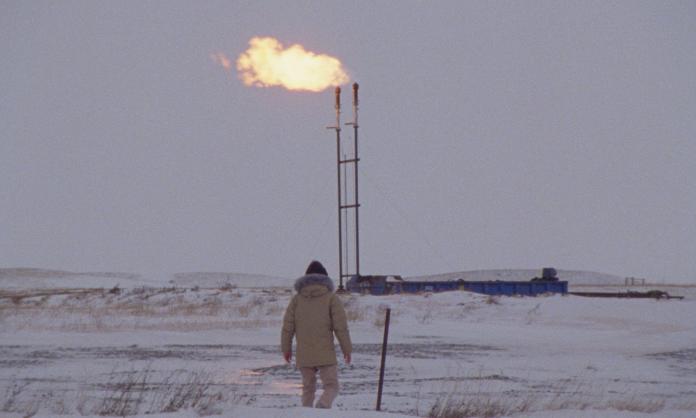The Shortest History of Economics
By Andrew Leigh. Black Inc, 2024; 224 pages; $28.
Reviewed by Rick Kuhn
--------------------
Federal Labor MP Andrew Leigh’s The Shortest History of Economics provides insights into the prejudices and blind spots of the current Labor government vastly more than into the book’s purported subject matter. It is a third-rate economic history of humanity since the stone age, with frequent trivial observations about the value of the economics profession, punctuated by a few feeble attempts at humour.
It would be a waste of time to list the myriad questionable observations, wrong statements and false conclusions in The Shortest History of Economics. It’s more productive to carry out what, in my youth, was called a “symptomatic reading”: identifying relevant information and perspective that aren’t in the book.
But first, where is Leigh coming from and what are his main messages?
A former economics professor, Leigh embraces the “neoclassical synthesis” of some of John Maynard Keynes’s theoretical initiatives concerning “economic aggregates” with the framework of often highly mathematical “marginalist economics” of individuals’ economic activity, developed independently by Stanley Jevons in England, Leon Walras in Switzerland and Carl Menger in Austria, during the early 1870s.
The Shortest History acknowledges that some of the fundamental marginalist assumptions are wrong and that we don’t always behave as rational “utility-maximising individuals” when making economic decisions. But Leigh never addresses, let alone resolves, the contradiction between this admission and his adherence to the models they underpin.
His core message is TINA: there is no alternative. If we don’t want lower living standards by opting for feudalism, hunter-gatherer societies or state capitalism (which he calls “communism”), there is no alternative to capitalism. Markets and free international trade are a wonder, which, with the technologies they have promoted, “have brought millions out of poverty”.
Still, Leigh states, markets don’t always bring about the best outcomes for people, and capitalism “doesn’t guarantee the wellbeing of those who lack capital”. So he is critical of the market fundamentalists who argue that governments should just set and enforce rules for economic behaviour. Most economists know that governments and public institutions have to engage in economic management to make the system more stable.
Such management, of course, includes not only modifying the rules of the game (governments don’t just “set and forget”) but also economic policies that routinely adjust public spending, taxation, interest rates, regulations for domestic and international economic transactions, along with workers’ conditions, pay and rights.
The concept of “market failure” is an escape hatch that mainstream economists use to justify governments engaging in economic management, though they may disagree about its appropriate extent and content. Labor governments, for example, have (decreasingly) tended to favour more government interventions to rectify market failures than their Liberal rivals.
Leigh is rather coy about the most appropriate policies to deal with, notably, the market failure that gives rise to global heating or inequality. Perhaps this is a necessary precaution: arse-covering in case a definite position is used against him because it contradicts a current or future Labor government policy. But he is up front about preferring to subsidise bosses to employ people over raising the level of the dole. But that’s in line with the ALP’s whole orientation.
So what’s not in the book?
Social class, in terms of people’s role in productive activity. This absence overlaps with another omission: alternative economic frameworks to Leigh’s own mainstream approach (apart from a throw-away mention of Henry George, the nineteenth century writer who highlighted the paradox of “poverty amid plenty”).
Karl Marx? Never heard of him.
The Shortest History of Economics is, like the compulsory theory courses taught in university economics degrees, more or less sophisticated apologetics for capitalism. There’s scope for differences of opinion only within that framework.
Marx resolved contradictions in the labour theories of value developed by his predecessors, including the insightful classical economists Adam Smith and David Ricardo. These theories identify human labour as the basis of the value of commodities.
The explanation of how profits arise was one of Marx’s most important breakthroughs. It also made the labour theory of value in the form perfected by him totally unacceptable to the paid shills for capitalism, like Leigh.
There is a fundamental distinction, Marx pointed out, between labour and labour power. Labour is human activity that can create new value by being applied to elements of the natural world. Bosses and corporations, however, don’t buy labour. The commodity they buy is workers’ capacity to engage in labour: “labour power”.
Once bought, for a day or a week etc., that commodity is useless unless supervisors or managers ensure, on behalf of the owners of productive resources (raw materials, machinery, equipment, buildings—“means of production” in Marxist jargon), that actual work is done. And as much work as possible within the constraints of what capitalists can get away with.
Like other commodities, the value of labour power is the amount of labour that has gone into producing it: the proportion of the value of workers’ upbringing and maintenance embodied in the food, clothing, shelter etc. that they consume. Workers are paid, depending on the success of their struggles over wages, more or less the value of their labour power.
But labour power is a unique commodity. Unlike other commodities, it doesn’t just pass on the value embodied in it. Labour power creates new (surplus) value, beyond the value embodied in it. Human labour is creative.
Who gets to own that surplus value? Capitalists. This is exploitation, in the Marxist sense. It seems natural and fair. That misleading appearance is what mainstream economists, like Leigh, accept, without delving below the surface to the reality of class relations. Profits are so natural that this History of Economics doesn’t deal with the history of how economists have explained where they come from.
Along with class, class struggle is absent from the book. It does, very briefly, mention unions and how they have improved conditions of work, through arguments “before industrial tribunals” or negotiating with managers—the kinds of union activity that contemporary Labor governments approve of.
But class struggle, which is much less polite, just isn’t there. Neither, on one side, going slow at work, expressing contempt for managers, let alone striking and occupying workplaces. Nor, on the other side, efforts to boost profits—by bosses speeding up production and cutting pay; or by governments restricting workers’ right to organise, taking the axe to public health, education and welfare spending to reduce taxes on the rich, and using armed force to break strikes.
Leigh’s History does include episodes of profound economic crisis: the Great Depression of the 1930s and the Global Financial Crisis of 2007–09. In an admission of the bankruptcy of his profession, he concedes that, “we should be disappointed that modern economies still produce an economic crisis every decade or two”. Still, he has faith: “Putting recessions in the rear-view mirror will mark a major achievement in economics”.
Capitalism has dramatically increased the productivity of human labour, but its crises still bring about catastrophic falls in workers’ living standards. What if, as Marx demonstrated, recurrent crises are intrinsic to capitalism, whatever policies governments implement, because there is a long-term tendency for the rate of profit, the motivator of capitalist production, to fall?
Then it is capitalism that we have put into the rear-view mirror.
Buy Leigh’s book? Don’t waste your money. If you haven’t read them, check out Peter Green’s very clear The Basic Ideas of Marxist Economics, Isaac Rubin’s A History of Economic Thought or Henryk Grossman’s Marx, Classical Political Economy and the Problem of Dynamics instead.










